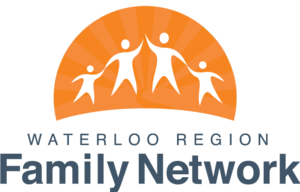
We collect basic website visitor information on this website and store it in cookies. We also utilize Google Analytics to track page view information to assist us in improving our website.
Near the end of 2023, Waterloo Region Family Network hosted a special Social & Recreation Program Information Fair. We were joined by a variety of program and service providers in Waterloo Region, four panelists, and parents, caregivers and individuals with exceptionalities.
A large portion of the evening was dedicated to a panel discussion. Our panel included two self-advocates and their parents. Together, they spoke about their interests and activities over the years, along with some of the gaps in services they experienced and the creative recreation option they created with three other families.
After the panel discussion, parents, caregivers and individuals had the opportunity to discuss some of the same questions our panelists answered. Throughout discussions, there were a few common themes that came up through almost all the questions.
One of the most common responses to the question, “What has been the biggest gift of finding a good Social & Rec opportunity fit for yourself & your family,” was that through our region’s existing programs and opportunities, families felt an improved sense of inclusion and connection to others. Parents and individuals expressed joy in finding social and recreational opportunities where they felt a sense of belonging, shared experiences and interests, and the feeling of being known and missed when absent. This feeling of connection and belonging helped families feel less anxious and isolated while increasing their happiness and improving parents’ and participants’ overall mental health.
A common issue expressed in discussions was challenges with the location of programs and transportation issues. Some families expressed that there is an overall lack of programs available in Cambridge, with most being in Kitchener, Waterloo, or Guelph. Therefore, families in Cambridge are either forced to commute into Kitchener-Waterloo or are left at a disadvantage compared to KW residents. Related to this challenge, participants also communicated their concerns with transportation and expressed that it would be hugely beneficial for programs to offer accessible transportation opportunities.
Not every program is the right fit for everyone. Some programs have specific requirements for entry for a variety of reasons, like participation limits because of limited support staff availability. While service providers in our region are doing a fantastic job offering a diverse range of programs for a variety of ages and abilities, participants identified that there are gaps in the current patchwork of programs that are available. In many instances, individuals with more complex needs like toileting support are unable to be accommodated and are excluded from participating. Therefore, the group expressed a desire for more programs that would include youth and adults with more complex needs.
Many families expressed difficulties finding information about all the programs and services available to them in our community. They stressed a need for a central resource or guidebook where they would have access to information about programs, registration deadlines, requirements for participation, and more. Parents also shared that it is difficult to find these programs on their own. It can be very time consuming to research accessible activities and filter through them to find the right fit for their loved ones within their schedules.
Another barrier to access expressed by participants was the high costs of certain programs. Parents and individuals expressed that ODSP is not enough to help cover the cost of programs, and not all programs accept Passport funding. They also mentioned that Passport regulations are always changing, making program coverage inconsistent.
There were a couple different comments related to timing worth mentioning. First, parents expressed a desire for recreation options after work hours (for example, after 5:30 pm). Others noted that they might learn about a program only to find out the start date is right around the corner or that the registration deadline has already passed.
There were many comments made throughout the evening relating to age. Some participants mentioned a lack of options for teens and young adults. It was noted that adult programs are largely filled with individuals around 40 years of age, which makes it difficult for those in their 20s to form friendships. There was a desire for more group options for those in transitional ages like pre-teens transitioning out of childhood who might no longer enjoy the same activities they did as children.
Every family is unique and will have different needs when it comes to social and recreation programs. However, our discussions throughout the evening emphasized that there are a few key areas of improvement for services providers that many families could agree on. These common themes are a great reminder for service providers of missed opportunities for inclusion and connection. We hope that by sharing this feedback with our network, we can all work together as a community to begin to fill in some of the gaps identified.
We were so pleased with the thoughtful and detailed answers that participants shared with us through the evening. WRFN would like to thank everyone who joined us during our Social and Recreation Info Fair. We are so grateful to the service providers who stayed with us throughout the evening to hear our panel speakers and some of the feedback from participants. Huge thanks go out to our panel speakers for their thoughtful responses to our questions and for sharing their creative and proactive recreation solutions with us. And thank you to everyone who participated!
Stay tuned for next steps and opportunities for connections.